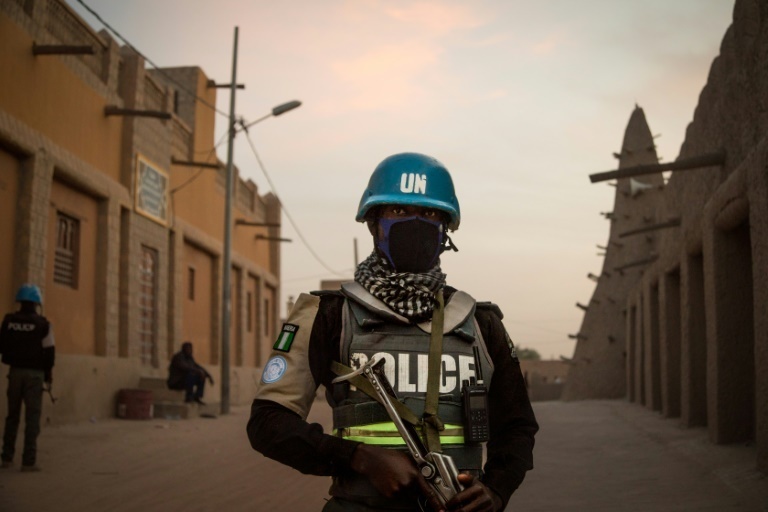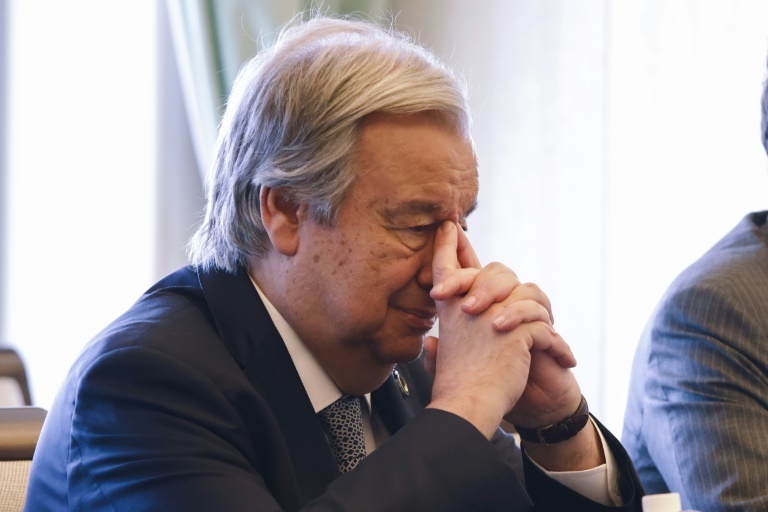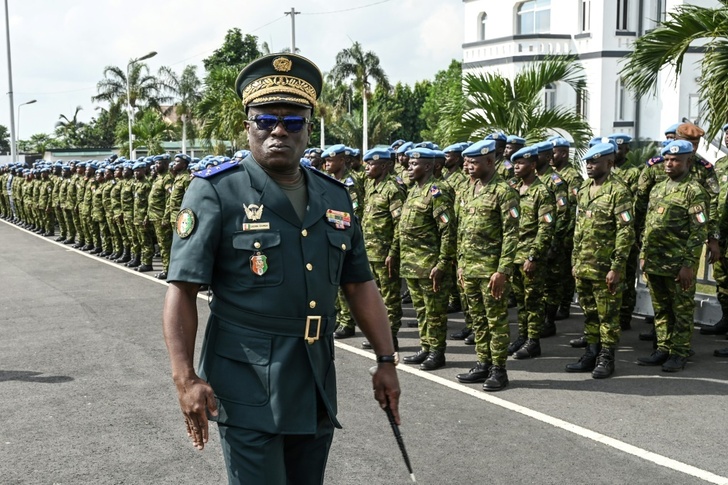UN Secretary-General Antonio Guterres called Tuesday for maintaining but streamlining a decade-old peacekeeping mission in troubled Mali, whose military leaders have clashed with the West and turned to Russia.
In a report to the United Nations Security Council, which will vote on June 29 on extending one of the UN's most dangerous missions, Guterres called for a "reconfiguration" of the mandate of the force known as MINUSMA that was first launched in 2013.
He acknowledged "uneven" results from MINUSMA but pointed to the importance of the coming year, with the junta promising -- to the skepticism of many -- a return to civilian rule.
"With Mali entering a crucial period leading to the return to constitutional rule, its continued presence remains invaluable," Guterres said of MINUSMA.
"The Council could consider streamlining MINUSMA tasks around a limited set of priorities to improve its overall effectiveness until the end of the political transition," promised by the junta by March 2024, Guterres said.
In January, Guterres submitted a strategic review of MINUSMA at the request of the Security Council to assess options for a mission tasked with stabilizing a west African state that has come under heavy pressure from jihadist violence.

In the end, he opted for a middle course.
"As I stressed in January, the status quo is not and cannot be an option," Guterres wrote.
"It can also neither be an option for the Malian people, who continue to bear the brunt of unspeakable violence and whose strong yearning for a better future remains unfulfilled, nor one for the international community, which, since 2013, has invested heavily in the stabilization of the country."
Guterres called for MINUSMA to maintain its current level of 13,289 soldiers and 1,920 police personnel. As of last month, the actual force is smaller with 11,102 soldiers and 1,315 police due to the difficulties of persuading countries to contribute.
- Shattering ties with West -
Mali's military rulers have increasingly clashed with the West, imposing operational restrictions on peacekeepers and breaking the country's longstanding alliance with former colonial power France.
Last year France wound up a controversial military operation launched in 2014 with an aim of preventing a jihadist takeover. Last month Germany said it would pull its own 1,110 troops out of MINUSMA, with Europe's largest economy saying it would instead focus on civilian assistance.

Guterres said he would use his authority to focus on the civilian component to support the political transition plan.
His strategy could mean the shutdown of some camps such as the Ber site in the Timbuktu region and lead to a coordinated withdrawal from parts of the Kidal region.
Guterres, in conducting his review, sought freedom of movement for the peacekeepers. He also looked for political progress in Mali, which witnessed back-to-back coups in 2020 and 2021.
"While there are areas of lingering and serious concern, there have also been some encouraging developments," Guterres said, pointing to the announcement of a constitutional referendum.
But Mali has come under heavy criticism after the UN human rights body last month reported the massacre of at least 500 people in the central town of Moura in March 2022 during an anti-jihadist operation.
That UN panel said unnamed foreign fighters took part in the killing, with the United States pointing blame at Russian mercenaries.
abd/sct/mlm
© Agence France-Presse
Your content is great. However, if any of the content contained herein violates any rights of yours, including those of copyright, please contact us immediately by e-mail at media[@]kissrpr.com.
Source: Story.KISSPR.com

